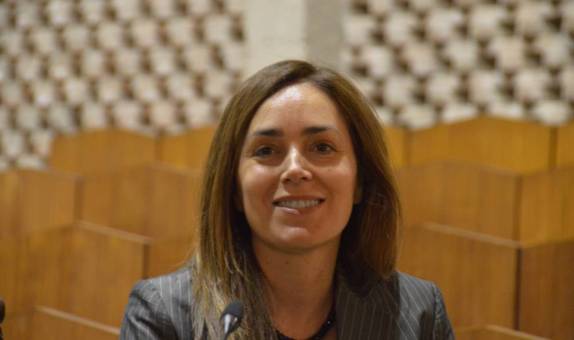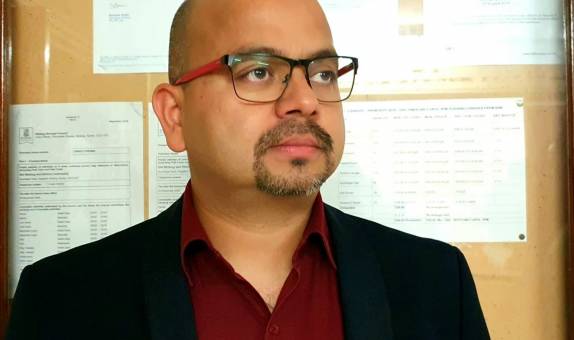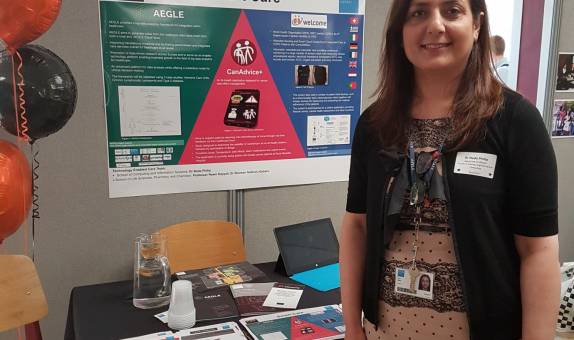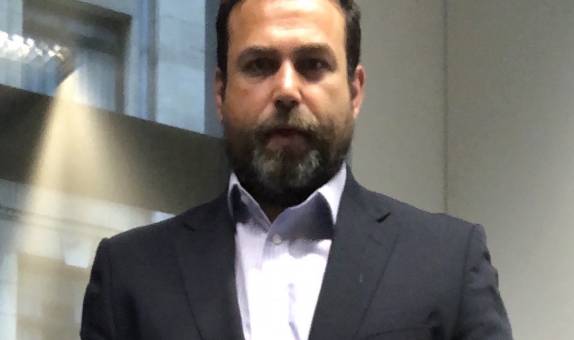Networking & Data Communications MSc
Why choose this course?
This course offers the knowledge and skills for designing, developing and operating secure IP-based networks. It offers practical skills in the specification, design, modelling and implementation of software and hardware. You will gain specialist knowledge of digital communications, multimedia communications, wireless networks and security issues. You will study the technologies of LTE and 5G wireless networks and the Internet of Things.
You can combine this course with management studies. The Management Studies pathway is ideal if you aspire to a management position in the industry.
The aims of the course are to:
- Provide knowledge, skills and a critical appreciation of the principles of data communications.
- Enable you to analyse a system and design an appropriate, custom solution.
- Develop subject-related practical skills.
- Provide you with the opportunities to develop written and oral communication skills.
- Prepare you for employment, research, further study and lifelong learning by developing your intellectual, problem-solving, practical and key (transferable) skills.
| Mode | Duration | Attendance | Start date |
|---|---|---|---|
| Full time | 1 year | MSc Networking & Data Communications | January 2025, September 2025 |
| Full time | 2 years including professional placement | MSc Networking & Data Communications | January 2025, September 2025 |
| Part time | 2–3 years | MSc Networking & Data Communications | January 2025, September 2025 |
| Full time | 1 year | MSc Networking & Data Communications with Management Studies | January 2025, September 2025 |
| Full time | 2 years including professional placement | MSc Networking & Data Communications with Management Studies | January 2025, September 2025 |
| Part time | 2–3 years | MSc Networking & Data Communications with Management Studies | January 2025, September 2025 |
| Main Location | Penrhyn Road |
Reasons to choose Kingston University
- Laboratories include up-to-date computers, test Local Area Network (LAN) and several types of wireless networks and enterprise scale networking technologies, including equipment for testing Internet of Things communication and a mobile edge computing testbed. There is equipment for video quality testing and immersive environments, including professional ultra high definition, high-dynamic range (HDR) and light field (plenoptic/holographic) cameras and displays, VR/AR equipment.
- Access advanced software, both on campus and remotely.
- There are opportunities to carry out a project, or dissertation, in collaboration with industry and research fellowships after your MSc.
- You will have the opportunity to take a one-year professional placement (on request).
Accreditation
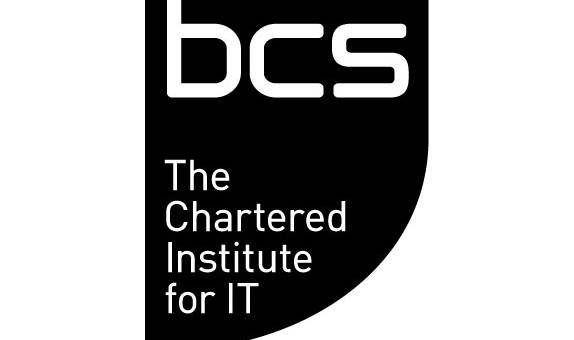
British Computer Society

This degree has been accredited by British Computer Society (BCS), The Chartered Institute for IT. Accreditation is a mark of assurance that the degree meets the standards set by BCS. An accredited degree entitles you to professional membership of BCS, which is an important part of the criteria for achieving Chartered IT Professional (CITP) status through the Institute.
Some employers recruit preferentially from accredited degrees, and an accredited degree is likely to be recognised by other countries that are signatories to international accords. This degree is accredited by BCS for the purposes of partially meeting the academic requirement for registration as a Chartered IT Professional.
This degree has been accredited by BCS, on behalf of the Engineering Council for the purposes of partially meeting the academic requirement for a Chartered Engineer (CEng). Accreditation is a mark of assurance that the degree meets the standards set by the Engineering Council in the UK Standard for Professional Engineering Competence (UK-SPEC). An accredited degree will provide you with some or all of the underpinning knowledge, understanding and skills for eventual registration as an Incorporated (IEng) or Chartered Engineer (CEng).
For full details of exemption and accreditation levels, please check the BCS course search.
The Faculty is a long-time member of BCS. For many years we have hosted meetings of the local BCS Kingston and Croydon Branch, contributing to members' continuing professional development programmes.
Please note: The programme delivered at our partner institution overseas is not currently accredited by the BCS.
What our graduates say
What you will study
The full MSc course consists of an induction programme, four taught modules, and project dissertation. Please note that this is an indicative list of modules and is not intended as a definitive list.
For a student to go on placement they are required to pass every module first time with no reassessments. It is the responsibility of individual students to find a suitable paid placement. Students will be supported by our dedicated placement team in securing this opportunity.
Networking & Data Communications MSc
Networking & Data Communications with Management Studies MSc
Core modules
Data Communications
30 credits
This core module provides a working knowledge of data communications covering TCP/IP networks and digital communications. Topics covered include transport layer services, multiplexing, TCP congestion control, network layer – network service models, IP addressing and IP network design, routing principles, dynamic routing, digital transmission, modulation, multiplexing and channel coding.
On successful completion of the module, you will be able to:
- Compare computer network architectures.
- Evaluate the performance of TCP under varying flow control and congestion conditions.
- Design an IP addressing scheme for a network.
- Define and calculate transmission performance over a communication link.
- Study and analyse characteristics of modulation methods.
Wireless Communications and Networks
30 credits
The module addresses theory and practice of wireless communication systems and networks, including the most recent wireless communications standards.
The first part will focus on the propagation characteristics of wireless channels and the main techniques for efficient communication, including modulation and channel coding. Characteristics and performance limits of wireless systems, techniques and tools to analyse them and methods for their design will also be covered.
The second part of the module will cover real-world wireless systems and networks, including wireless broadband systems and wireless sensor networks. It will provide practical and useful knowledge that can be readily applied in the wireless industry.
It covers the real-world, practical knowledge needed to understand, design, evaluate, deploy, test, validate and debug WLAN, WMAN and WPAN, as well as GPRS/ UMTS/ 3G and 4G and beyond networks and systems and Wireless Sensor Networks (WSN). Advanced technologies such as ultra-wideband communications and cognitive radio will also be addressed.
Network and Information Security
30 credits
This module provides an overview of a wide range of security aspects and techniques of computer networks, both cabled and wireless. It will introduce basic aspects of Information Security, comprising Security and Risk Management as well as Policies and Standards. It also covers Ethical and legal aspects of security and hence addresses the employability of the students in their future career. The module then goes on to the topic of Network Security, both from a theoretical and practical aspect: network attacks, vulnerabilities and controls are introduced and examined in practical lab sessions. Finally, cutting-edge topics such as Web and Cloud security complete the picture.
Multimedia Communications
30 credits
The module addresses theory and practice of multimedia communication systems and networks, with a special focus on multimedia signals (audio, images and video) and relevant compression and transmission techniques.
The first part of the module focuses in particular on the representation of multimedia sources and on lossless and lossy compression methods for data, audio, image and video signals.
The second part of the module focuses in particular on the transmission of multimedia sources over communication systems and networks and on the strategies adopted to protect multimedia content from channel and network errors and losses.
Project Dissertation
60 credits
This module constitutes the major individual piece of work of the masters programme where the student carries out a project involving independent critical research, design and implementation (where applicable).
On successful completion of the module, students will be able to:
- Select, justify and use effectively the research methods and techniques appropriate for particular cases in order to carry out a literature search and an independent work of research
- Critically identify the need to position their research in the wider academic or business context and structure the dissertation format to agreed conventions
- Plan, manage and critically evaluate the project using the techniques and tools needed in order to bring it in successfully on time and within resourcing limits
- Identify and critically analyse real-world problems or knowledge gaps to which academic concepts and methods can be realistically applied to improve or resolve the problem situation
- Apply skills to show an ability to engage in academic and professional communication with others in their field through report and presentation
- Present critical awareness in applying appropriate legal, social or ethical obligations and when required, respond to the financial and other constraints of a corresponding business environment.
Core modules
Data Communications
30 credits
This core module provides a working knowledge of data communications covering TCP/IP networks and digital communications. Topics covered include transport layer services, multiplexing, TCP congestion control, network layer – network service models, IP addressing and IP network design, routing principles, dynamic routing, digital transmission, modulation, multiplexing and channel coding.
On successful completion of the module, you will be able to:
- Compare computer network architectures.
- Evaluate the performance of TCP under varying flow control and congestion conditions.
- Design an IP addressing scheme for a network.
- Define and calculate transmission performance over a communication link.
- Study and analyse characteristics of modulation methods.
Wireless Communications and Networks
30 credits
The module addresses theory and practice of wireless communication systems and networks, including the most recent wireless communications standards.
The first part will focus on the propagation characteristics of wireless channels and the main techniques for efficient communication, including modulation and channel coding. Characteristics and performance limits of wireless systems, techniques and tools to analyse them and methods for their design will also be covered.
The second part of the module will cover real-world wireless systems and networks, including wireless broadband systems and wireless sensor networks. It will provide practical and useful knowledge that can be readily applied in the wireless industry.
It covers the real-world, practical knowledge needed to understand, design, evaluate, deploy, test, validate and debug WLAN, WMAN and WPAN, as well as GPRS/ UMTS/ 3G and 4G and beyond networks and systems and Wireless Sensor Networks (WSN). Advanced technologies such as ultra-wideband communications and cognitive radio will also be addressed.
Network and Information Security
30 credits
This module provides an overview of a wide range of security aspects and techniques of computer networks, both cabled and wireless. It will introduce basic aspects of Information Security, comprising Security and Risk Management as well as Policies and Standards. It also covers Ethical and legal aspects of security and hence addresses the employability of the students in their future career. The module then goes on to the topic of Network Security, both from a theoretical and practical aspect: network attacks, vulnerabilities and controls are introduced and examined in practical lab sessions. Finally, cutting-edge topics such as Web and Cloud security complete the picture.
Business in Practice
30 credits
This postgraduate module covers the theory and practice of the business and management needs of students from different academic contexts such as, but not limited to Science, Engineering, Computing and Health Services who are aspiring team leaders, managers, and entrepreneurs in business within the context of the commercial, public, voluntary, or academic sector.
Students will investigate business topics ranging from finance, accounting, budgeting, and marketing, to organisational management by developing the leadership skills to meet business challenges and to cope with their complexity.
The module will explain and put into context business concepts to graduates from a variety of sectors including those encompassed by Science, Engineering, Computing and Health Services.
Project Dissertation
60 credits
This module constitutes the major individual piece of work of the masters programme where the student carries out a project involving independent critical research, design and implementation (where applicable).
On successful completion of the module, students will be able to:
- Select, justify and use effectively the research methods and techniques appropriate for particular cases in order to carry out a literature search and an independent work of research
- Critically identify the need to position their research in the wider academic or business context and structure the dissertation format to agreed conventions
- Plan, manage and critically evaluate the project using the techniques and tools needed in order to bring it in successfully on time and within resourcing limits
- Identify and critically analyse real-world problems or knowledge gaps to which academic concepts and methods can be realistically applied to improve or resolve the problem situation
- Apply skills to show an ability to engage in academic and professional communication with others in their field through report and presentation
- Present critical awareness in applying appropriate legal, social or ethical obligations and when required, respond to the financial and other constraints of a corresponding business environment.
Work placement scheme
Many postgraduate courses at Kingston University enable students to take the option of a 12-month work placement as part of their course. Although the University supports students in finding a placement and organises events to meet potential employers, the responsibility for finding the work placement is with the student; we cannot guarantee the placement, just the opportunity to undertake it. You may find securing a professional placement difficult as they are highly competitive and challenging, but they are also incredibly rewarding. It is very important to prepare and apply yourself if this is the route you wish to take. Employers look for great written and oral communication skills and an excellent CV/portfolio. As the work placement is an assessed part of the course, it is covered by a student's Student Route visa.
Find out more about the postgraduate work placement scheme.
Entry requirements
Teaching and assessment
Who teaches this course
The course is taught at the School of Computer Science and Mathematics.
The School of Computer Science and Mathematics is driven by the philosophy of 'learning through making'; we focus strongly on facilitating a hands-on experience, student led and owned product portfolios and producing industry-ready graduates.
We utilise a range of innovating teaching and learning approaches in our invigorated and modernised degree programmes; combining studio practices, project-based learning, and context driven lectures to facilitate an informed approach to problem solving.
Postgraduate students may run or assist in lab sessions and may also contribute to the teaching of seminars under the supervision of the module leader
Course fees and funding
Additional costs
Depending on the programme of study, there may be extra costs that are not covered by tuition fees which students will need to consider when planning their studies. Tuition fees cover the cost of your teaching, assessment and operating University facilities such as the library, access to shared IT equipment and other support services. Accommodation and living costs are not included in our fees. Where a course has additional expenses, we make every effort to highlight them. These may include optional field trips, materials (e.g. art, design, engineering), security checks such as DBS, uniforms, specialist clothing or professional memberships.
After you graduate
Former students work in management, engineering and computing roles in companies such as British Telecom (BT), IBM, Spotify, Meta, Inify Labs, public organisations such as the NHS, Digital Catapult, Rail delivery group, work as IT managers or consultants, or have become academics in the UK or internationally.
Careers and recruitment advice
The Faculty has a specialist employability team. It provides friendly and high-quality careers and recruitment guidance, including advice and sessions on job-seeking skills such as CV preparation, application forms and interview techniques. Specific advice is also available for international students about the UK job market and employers' expectations and requirements.
The team runs employer events throughout the year, including job fairs, key speakers from industry and interviews on campus. These events give you the opportunity to hear from, and network with, employers in an informal setting.
Our modern teaching environment at Kingston University
There is a wide range of facilities at our Penrhyn Road campus, where this course is based. You will have access to a modern environment with the latest equipment, including:
- Centre for Augmented and Virtual Environments (CAVE) lab
- dedicated postgraduate computing laboratories, fully-equipped with fold-flat LCD screens, data-projection systems and high-spec processors
- development software and tools, such as Linux, Microsoft.net, Dreamweaver MX, Flash 8, Eclipse, Java 2 Standard and Mobile Editions, tools for Motorola and Nokia phones, UML and CASE tools and NXP Processors Development Kits
- Digital Signal Processors (dsPIC Digital Signal Controllers)
- IP Set Top Box development environment (NXP's STB810)
- Electronics Laboratory
- a mix of wireless LAN technologies
- the learning resources centre, offering subject libraries, online database subscriptions and resource materials
- a postgraduate teaching suite
- the dedicated Graduate Centre on campus, providing seminar rooms and social spaces.
Our dedicated team of IT technicians supports the labs and is always on-hand to provide assistance.
Resources in London
Kingston is just a 30-minute train journey from central London, where you can access a wealth of additional libraries and archives, including the British Library and the Institute of Engineering and Technology.
Industrial Advisory Board
To ensure your studies are kept up to date and answer the needs of business, our courses are created and reviewed in consultation with an advisory board of key industry experts and senior academics. The Board also provides input and advice on our research portfolio.
With members from Google, Microsoft, EasyJet, games developer Colossal and Chief Information Officers from local government – our Advisory Board represents the diverse spectrum of industries and public sector organisations that make up the jobs market for our graduates.
Links with the British Computer Society
The Faculty is also a long-time member of the British Computer Society (BCS). For many years we have hosted meetings of the local BCS Kingston and Croydon Branch, contributing to members' continuing professional development programmes.
Links with Institute of Electrical and Electronics Engineers (IEEE), Institution of Engineering and Technology (IET), Association for Computing Machinery (ACM)
Academics and industry researchers are often invited to deliver talks to MSc students via the IEEE distinguished lecturer scheme. Invited speakers in the course are also often selected IET members. Students are encouraged to get involved in ACM activities.
Current research in this subject
Many of our staff in the Faculty are research active. This ensures they are in touch with the latest thinking and bring best practice to your studies.
Kingston's research outputs often become part of international technical standards (e.g. IEEE, ITU) and industry products. Students are encouraged to select their project topics in line with Kingston's ongoing research and as part of existing research projects and collaborations.
Computing research activities are focused around two main research centres:
- Digital Information Research Centre – offering expertise in computer vision, medical imaging, visual surveillance, ambient intelligence, machine learning and computer graphics;
- In particular, research in the area of Networking and Data Communications is performed within the Wireless Multimedia and Networking (WMN) Research Group.
Extra activities for this course
The range of events and lectures in the Faculty enhances your studies and adds an extra perspective to your learning.
For example, the Digital Information Research Centre (DIRC) runs seminars which have recently covered:
- How social media affects police operations
- Dimensionality issues in weighted differential entropy
- Link quality based routing framework for wireless sensor networks
- Data integration for smart urban transport
- HTTP video streaming adaptation
Course changes and regulations
The information on this page reflects the currently intended course structure and module details. To improve your student experience and the quality of your degree, we may review and change the material information of this course. Course changes explained.
Programme Specifications for the course are published ahead of each academic year.
Regulations governing this course can be found on our website.




